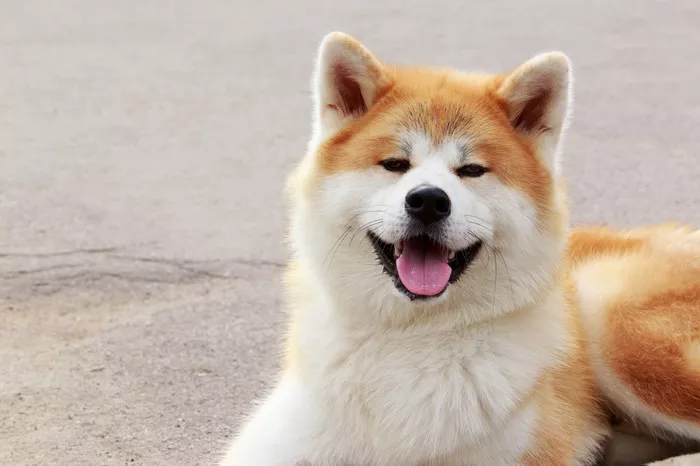The Akita, a majestic and loyal breed, deserves a diet that aligns with its unique nutritional needs. As responsible pet owners, understanding what Akitas eat is fundamental to their health, well-being, and longevity. In this comprehensive guide, we explore various aspects of the Akita diet, from breed-specific dog food to raw and homemade diets. Dive into the world of Akita nutrition, learning what suits this remarkable breed and how to keep them thriving through thoughtful dietary choices.
What do Akitas Eat?
Nourishing your Akita begins with understanding their dietary requirements.
Breed-Specific Dog Food: Akitas, known for their large size and robust build, benefit from breed-specific dog food. These formulations consider the breed’s unique characteristics and nutritional needs. Look for high-quality, commercially available dog food designed for large breeds or, ideally, formulated specifically for Akitas.
Natural and Holistic Dog Food: Embracing natural and holistic dog food options can contribute to your Akita’s overall health. These formulations often prioritize whole, minimally processed ingredients, avoiding artificial additives and fillers. Holistic dog foods may also include beneficial supplements such as omega-3 fatty acids for coat health and joint support.
Raw Diet for Dogs: Some Akita owners opt for a raw diet, emphasizing uncooked meats, bones, and raw vegetables. Proponents of raw feeding believe it closely aligns with a dog’s ancestral diet and can lead to benefits such as improved coat condition, dental health, and digestion. However, it’s crucial to consult with a veterinarian to ensure the diet is balanced and meets all nutritional requirements.
Mixed Feeding Diet: A mixed feeding diet combines commercial dog food with other nutritious elements, providing a balanced approach. This could involve incorporating fresh vegetables, lean meats, or even some raw components into your Akita’s regular kibble. This approach allows for variety and may appeal to dogs with particular taste preferences.
Homemade Diets: Crafting homemade meals for your Akita allows you to have complete control over their diet. However, it requires careful planning to ensure the inclusion of essential nutrients. Consult with a veterinary nutritionist to create balanced recipes that meet your Akita’s specific dietary needs.
What Human Food Can Akitas Eat?
While commercial dog food forms the backbone of their diet, Akitas can enjoy certain human foods in moderation.
Lean Meat: Akitas can benefit from lean meats such as chicken, turkey, or beef, cooked thoroughly and free from seasonings or additives. These protein sources contribute to muscle maintenance and overall health.
Fish: Rich in omega-3 fatty acids, fish can be a valuable addition to your Akita’s diet. Opt for cooked, boneless fish like salmon or tuna, promoting skin and coat health.
Vegetables: Many vegetables are safe and nutritious for Akitas. Carrots, green beans, and sweet potatoes are excellent choices. Ensure vegetables are cooked to enhance digestibility.
Fruits: Certain fruits, like apples and blueberries, can offer essential vitamins and antioxidants. Remember to remove seeds and pits, as they can pose a choking hazard.
Eggs: Eggs are a protein-rich addition to your Akita’s diet. Cooked eggs provide essential amino acids and can contribute to a shiny coat.
Plain Yogurt: Plain, unsweetened yogurt can introduce beneficial probiotics to support your Akita’s digestive health. Ensure it does not contain artificial sweeteners, which can be harmful to dogs.
What Foods Can Akitas Not Eat?
While a variety of human foods can complement an Akita’s diet, certain foods should be strictly avoided.
Chocolate: Chocolate contains theobromine, which is toxic to dogs. Even small amounts can lead to serious health issues.
Grapes and Raisins: These fruits have been linked to kidney failure in dogs and should be kept out of your Akita’s reach.
Onions and Garlic: Allium plants, including onions and garlic, can cause damage to a dog’s red blood cells, leading to anemia.
Avocado: Avocado contains a substance called persin, which can be toxic to dogs. Keep them away from this creamy fruit.
Alcohol: Any form of alcohol is hazardous to dogs, causing a range of health issues from coordination problems to respiratory failure.
Caffeine: Products containing caffeine, such as coffee and tea, should be kept away from Akitas as they can lead to restlessness, increased heart rate, and even toxicity.
What Do Akitas Like to Eat?
Understanding your Akita’s preferences can make mealtime an enjoyable experience for both of you.
High-Quality Dog Treats: Akitas respond well to high-quality dog treats during training or as rewards. Choose treats that are not only delicious but also offer nutritional benefits.
Variety in Textures: Akitas may appreciate a variety of textures in their meals. Mixing dry kibble with wet dog food or incorporating some raw elements can add interest to their meals.
Interactive Feeders: Consider using interactive feeders or puzzle toys to make mealtime engaging for your Akita. These devices provide mental stimulation and can prevent boredom.
Incorporating Broths: Adding low-sodium, dog-safe broths to your Akita’s meals can enhance flavor and encourage hydration.
Fresh Water: Always provide fresh water for your Akita. Hydration is crucial for their overall health, and clean water enhances the palatability of their meals.
Conclusion
In conclusion, the dietary choices you make for your Akita significantly impact their health, energy levels, and overall well-being. Whether you opt for breed-specific dog food, explore natural and holistic options, embrace a raw diet, or incorporate homemade meals, the key is to ensure balance and nutritional completeness.
Understanding what Akitas eat involves considering their breed-specific needs, introducing safe human foods in moderation, and avoiding potential hazards. By tailoring their meals to preferences, avoiding harmful foods, and maintaining a well-rounded diet, you contribute to the longevity and vitality of your beloved Akita companion. As with any aspect of pet care, consulting with your veterinarian ensures that your Akita’s dietary choices align with their individual health requirements, promoting a happy and healthy life.


